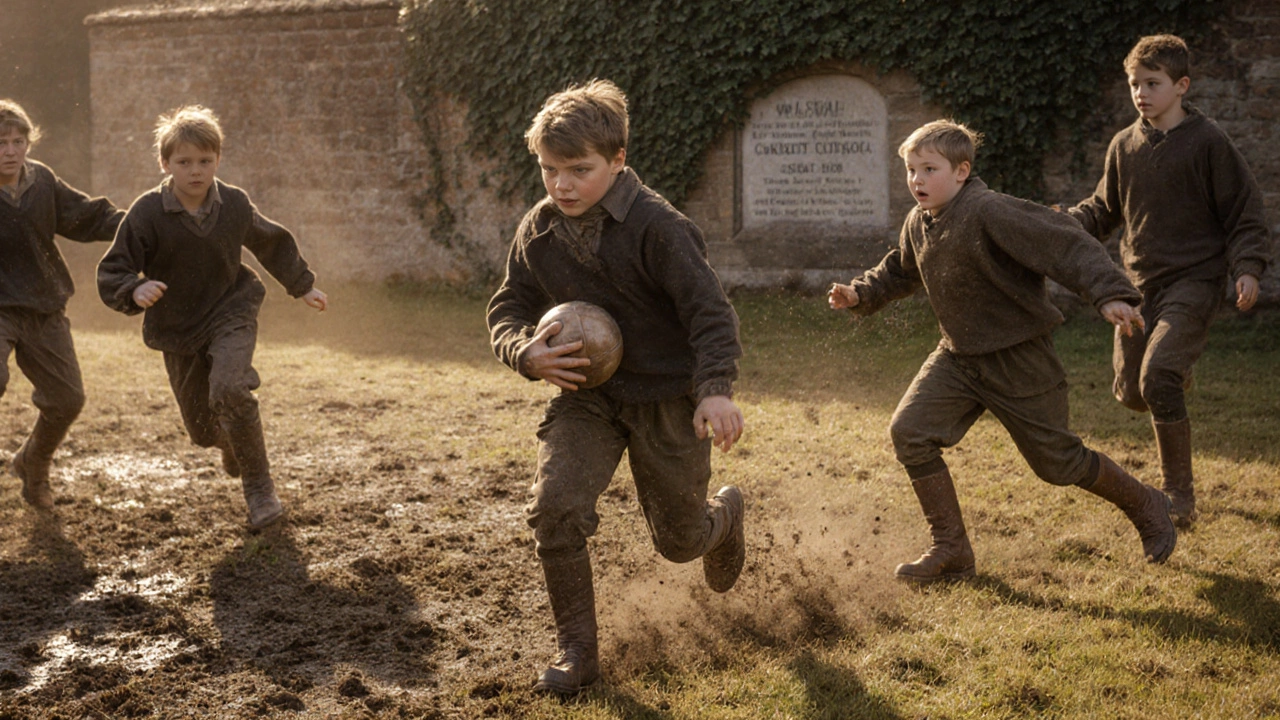Rugby History: From Its Rough Beginnings to the Modern Game
Ever wondered how a schoolyard scramble turned into a worldwide sport? Rugby started in 1823 when a student at Rugby School in England ignored the soccer rule and grabbed the ball. That single act sparked a new game that blended running, tackling, and teamwork.
In the 1840s the sport spread to other English schools, each adding its own twists. By the 1860s clubs formed in towns and cities, and the first set of written rules appeared in 1865. Those early rules still echo today—like the distinction between handling and kicking the ball.
Key Milestones that Shaped Rugby
1869 saw the first club match outside England: a Scottish side challenged a London club. The 1871 formation of the Rugby Football Union (RFU) gave the game a governing body and standardized the Laws of the Game. The split in 1895 created two codes—Rugby Union and Rugby League—over disagreements about player payments. This division still exists, each with its own championship structures and fan bases.
The early 20th century brought international tours. The 1905 Original All Blacks tour of Britain captured imaginations with their fast, open style. World Wars paused competition, but after World II the sport bounced back, and the inaugural Rugby World Cup in 1987 gave it a global showcase.
Why Rugby History Still Matters
Understanding the past explains why certain traditions linger, like the pre‑match haka or the Friday night club socials in England. It also clarifies rule changes—such as the introduction of the professional era in 1995, which turned rugby into a full‑time career for many players.
Today, rugby thrives on three continents. In Brazil, the sport is growing fast, with new clubs, school programs, and international matches boosting its profile. In Argentina, the nickname “Los Pumas” traces back to a 1960s tour where a jaguar logo mistakenly appeared on a jersey, a story that still fuels national pride.
From grassroots games in small towns to the glitzy venues of the Rugby World Cup, the sport’s history is a mix of rebellion, community, and evolution. Knowing where it began helps fans appreciate the drama of a try, the strategy of a ruck, and the camaraderie that keeps players coming back.Ready to dig deeper? Browse our rugby articles—from the five essential rules for beginners to the latest player salary reports—to see how the past influences the present. Whether you’re a seasoned fan or a curious newcomer, rugby’s rich heritage offers something worth exploring.
What Country Invented Rugby? The Real Story Behind the Sport

Rugby was invented in England in 1823 at Rugby School when William Webb Ellis picked up the ball and ran with it. That moment led to the first codified rules in 1845 and the birth of a global sport now played in over 120 countries.
Why Is Rugby So Called? The Real Story Behind the Name

Rugby gets its name from Rugby School in England, where the game's rules were first written down in the 1840s. It wasn't invented by one person-it grew from schoolyard play. The name stuck because it distinguished it from other football games.
Who Invented Rugby? The Real Story Behind the Game

Rugby wasn't invented by one person - it evolved from schoolyard games in 19th-century England. The legend of William Webb Ellis is iconic, but the real story is more complex. Learn how rugby became a global sport.
Why Rugby Hasn't Taken Off in Germany: The Surprising Truth Explained

Explore why rugby remains a minor sport in Germany, uncovering historical, cultural, and practical reasons with fascinating facts, stats, and insider tips.
Why Greece Isn't in the Rugby Game

Greece, known for its rich history and vibrant culture, surprisingly lacks a team in the world of rugby. This article explores the historical and cultural reasons behind Greece's absence from the international rugby scene. By understanding these factors, readers can better appreciate the diversity and heritage of sports around the world. The discussion spans from historical preferences for other sports to the current efforts by athletes to break into rugby.
